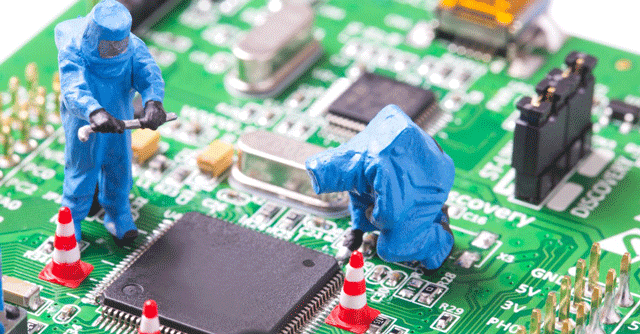
Electronics repair industry could be worth $20 billion


As the domestic demand for refurbishing gadgets grows, industry stakeholders are calling upon the government to incentivize organization of India’s electronics repair services industry. According to experts, the country is standing on the verge of a $20 billion opportunity in electronics repair and refurbishing — which could benefit both companies and the government alike.
Ajai Chowdhry, founder of Indian tech services firm HCL and chairman of Electronic Products Innovation Consortium (EPIC) Foundation, said that there is a growing market for electronics refurbishing and repair services. “Just the refurbishment market for smartphones is estimated to be worth $10 billion per year,” he said, adding that put together the electronics repair market could account for $20 billion.
Chowdhry added that initial steps are being taken to formalize the repair industry, which includes moves such as Flipkart’s acquisition of refurbishing and repair services startup, Yantra, in January this year. While the examples are still limited, services such as Onsite-Go and Urban Company have started offering at-home repair services for smartphones, laptops and other common gadgets. Onsite-Go, in fact, also offers annual maintenance contracts (AMCs) to service and repair consumer gadgets.

For instance, the company offers one-year and two-year servicing and repair contracts for smartphone owners. For a device bought at ₹18,000, users can pay ₹1,599 for a two-year, "no questions asked" at-home repair service.
Further, on September 7, industry body Manufacturers’ Association for Information Technology (MAIT) presented the benefits of these services to IT Minister Ashwini Vaishnaw. Nitin Kunkolienker, president emeritus of MAIT, told Mint that for such services to grow, incentivizing local manufacturing of components could be critical.
“One of the key aspects of promoting a homegrown repair services economy is to ensure that the components are being sourced locally, which has not happened extensively so far. India has a robust supply chain that caters to various industries, which can diversify to procure and manufacture components that are critical for a local repair economy to grow. At present, most core components are imported from other nations, thereby making our supply chain dependent on international conditions," Kunkolienker said.

On the other hand, Nitin Gupta, chief executive of electronic waste recycling firm Attero India, said that the company has seen a clear growth in the volume of e-waste that it collects and recycles every year — but the benefits of this have not trickled down to companies in India so far. The company collected 100,000 metric tons of electronic waste as of the last fiscal year.
He affirmed that from all the material that is recycled and supplied to manufacturers, most of the material is exported to other countries, such as China and Vietnam. In India, core components are supplied to other industries — for instance, 99.99% purity copper, gold and silver are extracted from obsolete printed circuit boards (PCBs), and supplied to wire and jewelry manufacturers. For electronics, the market is practically non-existent right now.
Alluding to this, Chowdhry added that enabling component manufacturers would "create micro entrepreneurs catering to electronic repairs." However, he also added that this would need to be a step-wise process. "What we would need are many custom-bonded warehouses, where components can be stored for quick delivery to repair shops — as a lot of components are imported," he said.

The upcoming Right to Repair regulation, which is presently in works with the government, is expected to help take this forward. However, this will not be without challenges. Anupam Shukla, technology lawyer and partner at Pioneer Legal, said that the key facet will be for India to take global precedent and establish a formalized economy for third party repairs.
"Right now, most third party repairs are not licensed by companies, since they fear leaking of sensitive, copyright material in terms of their product designs. To enable official third party repairs, the law will need to take into account how to circumvent such an issue, while offering companies a way to seek recourse from infringements," he added.
